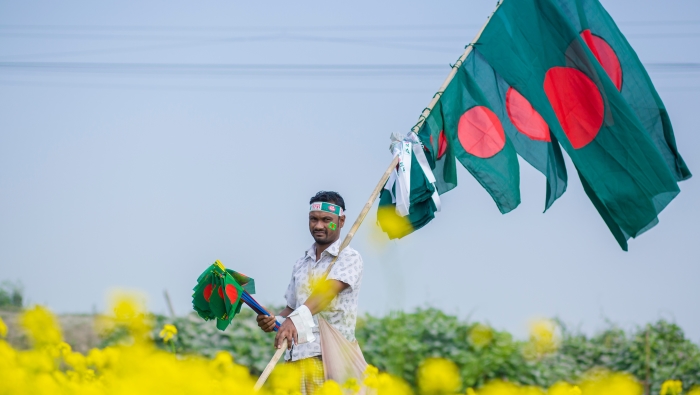
Dhaka: Accompanied by high humidity levels, energy-starved Bangladesh has been experiencing brutal heatwaves. Officials at the Bangladesh Meteorological Department (BMD) said heatwaves swept for 24 days in April and 22 days in May this year.
Also, they said both April and May witnessed very low rainfall this year compared to the average rainfall during the same period over the last 30 years.
Md Bazlur Rashid, a meteorologist at the BMD, termed this year's weather pattern extremely unusual, saying the country has not seen such prolonged heatwaves in at least the last 50 years.
"Frequency of heatwaves is undoubtedly increasing," he told Xinhua Saturday, saying that the temperature is also rising.
The BMD defines temperatures from 36 to 38 degrees Celsius as a mild heatwave, 38 to 39.9 degrees Celsius as a moderate heatwave, and above 41 degrees Celsius as a severe heatwave.
Bangladesh's capital Dhaka experienced 40.6 degrees Celsius on April 16 this year, the highest in the capital in 58 years.
On Friday, the highest temperature was recorded in the country's northwestern Rajshahi region at 41.3 degrees Celsius.
The South Asian country is sitting on a massive river delta, but in recent years natural disasters like floods and heatwaves induced by extreme weather due to climate change have caused faster-than-usual disasters in the country of some 165 million people.
Md Bazlur Rashid said the heatwaves would escalate next year due to erratic rainfall and high temperatures, posing a threat to Bangladesh, one of the worst victims of global warming.
As people reel under the country's longest heatwaves in decades, a crippling power crisis has added to the misery of the Bangladeshis in recent months. People across the country suffer immensely as power cuts are more frequent.
In Dhaka, there were reportedly outages of at least four to five hours on average and over eight to ten hours in rural areas.
Failing to cope with the unbearable heat and load shedding, the Bangladeshi government earlier this month was forced to shut down educational institutions across the country for days.
Also, heatwaves coupled with frequent load shedding caused a severe blow to the businesses.
The ongoing heatwave substantially increased the demand for electricity. The country is currently facing a load shedding of around 2,500 MW.
A Power Ministry official said at least 53 of the country's 153 power plants have been shut in recent months for maintenance or due to a fuel shortage amid a dollar crisis.
Prime Minister Sheikh Hasina has recently urged the people of Bangladesh to be frugal in using electricity and all other things.
As the electricity shortage has reached an intolerable level, Hasina said that measures were taken to resume production at some power plants that suspended operation due to a lack of coal and gas.
Frequent power cuts and high inflation are both "intolerable," she said, ordering steps to ease the sufferings of the people.
Inflation has neared double digits, with a 9.94 percent rise in May, the highest in a decade, according to state agency Bangladesh Bureau of Statistics.